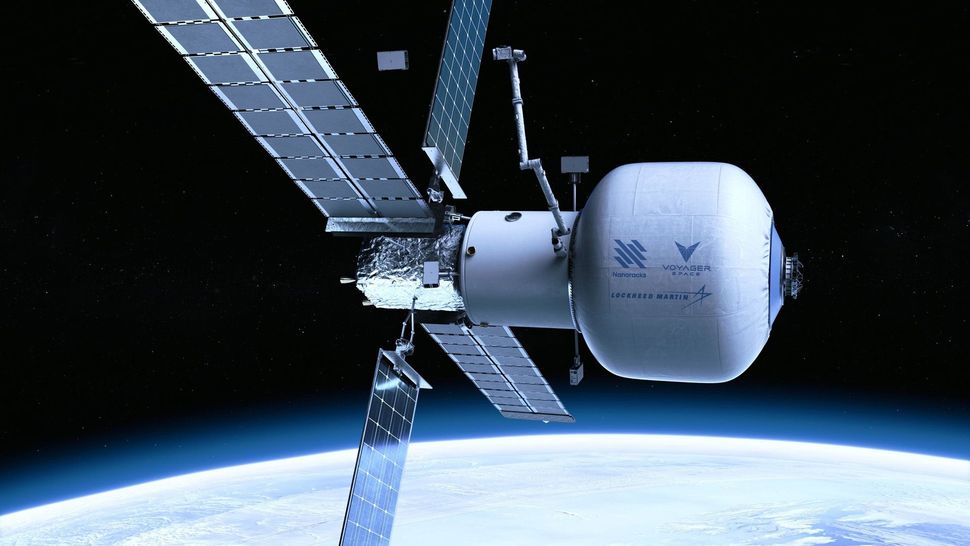NASA has awarded nearly $100 million in additional funding to commercial space station partners that are developing low Earth orbit destinations.
With the International Space Station (ISS) set for retirement in 2030, NASA has Space Act Agreements with Blue Origin and Voyager Space to develop concepts for a new orbiting lab as part of the space agency’s Commercial Low Earth Orbit Destinations (CLD) program. On. Jan. 5. NASA announced modifications to its existing agreements, including new technical milestones and reallocated funding.
“These new milestones will be of immense value to NASA and the partners, and will help ensure we have a smooth transition from the International Space Station to commercial destinations,” Phil McAlister, director of commercial space at NASA, said in the statement from the space agency.
Related: International Space Station photo tour
With the announcement, Blue Origin received an additional $42 million on top of its original $130 million award to develop the Orbital Reef space station concept, which involves Sierra Space, Boeing, Amazon and a number of other companies. The increase includes additional milestones for subsystem design reviews and technology maturation, as well as work on the station’s life support systems, including water filtration and atmospheric monitoring, according to the statement.
Voyager Space, which is developing the Starlab orbiting complex with Nanoracks,Lockheed Martin and Northrop Grumman, received an additional $57.5 million to its original $160 million award. The new funding will be used for various development milestones focused on operations, assembly, integration and testing, as well as a rendezvous and proximity operations demonstration.

“The milestones target key technology and risk reduction areas of our partners’ designs,” McAlister said in the statement. “The milestones also include additional hardware testing which is critically important to any spaceflight development effort. In addition, each new milestone will be an opportunity for NASA to gain further insight into our partners’ progress and technical designs.”
The additional funding provided to Voyager Space will also be used to upgrade Northrop Grumman’s Cygnus cargo spacecraft following the new partnership forged between the two companies. Previously, Northrop Grumman had a separate Space Act Agreement with NASA to build their own space station, but the company announced that it would instead work with Voyager Space and provide its Cygnus spacecraft to transport cargo to Starlab.
As a result of that partnership, Northrop Grumman withdrew from its agreement with NASA and the space agency transferred the remaining funding that was previously allocated to Northrop Grumman, along with other program funding (for a combined total of $99.5 million), to Blue Origin and Voyager Space. Part of the reallocated funds will now be used to upgrade the Cygnus cargo spacecraft to enable it to dock directly with Starlab, according to the statement.
NASA has partnered with multiple companies to design and develop commercial space station concepts in hopes to begin operations later this decade — before the ISS is retired in 2030 — and further support training, research and testing in low Earth orbit.
“We continue to see an immense amount of dedication from our partners,” Angela Hart, manager of NASA’s Commercial Low Earth Orbit Development Program, said in the statement. “The agency is committed to continuing to work with industry [partners] with the goal [of] having one or more stations in orbit to ensure competition, lower costs, and meet the demand of NASA and other customers.”